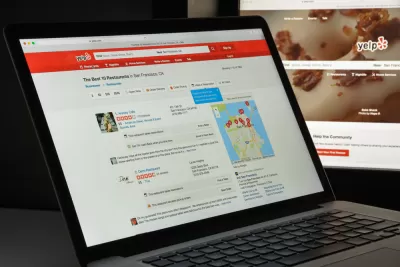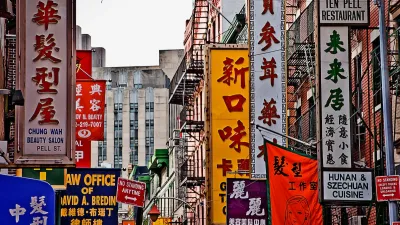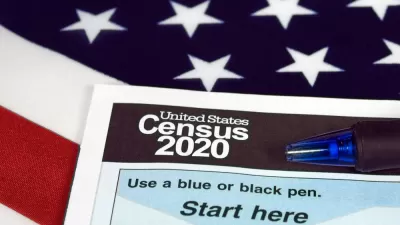As "foodies" venture into new territory in search of exciting food experiences, they contribute to the transformation of urban foodscapes that have been built by people of color.

In today’s urban culture, “ethnic” food is having a moment. Pupusas, banh mi, phó, arepas, dosas, tamales, manakeesh, tacos, kebabs, empanadas, and other “exotic” dishes have become popular among affluent and white consumers keen to explore new flavors and establish their cultural capital and multicultural values. Foodies are skipping acclaimed restaurants in upscale districts for “holes in the wall” in immigrant and low-income neighborhoods to discover “authentic” culinary treasures.
However, as they venture into new territory in search of exciting food experiences, they contribute to the transformation of urban foodscapes — the physical, symbolic, cultural, lived, and imagined food environments — that have been built by people of color, often immigrants, to confront decades of neglect, segregation, and systemic racism by food retailers, investors, and policy makers.
What used to be foodscapes for residents are becoming increasingly cosmopolitan, privileging the tastes of outsiders who will presumably bring revenue, income, and status. The carefully curated foodscapes that emerge to meet new consumer demands erase the history of places, the struggles of residents, and the labor of food workers and ethnic entrepreneurs. Such erasure occurs in the way food and place are described and represented, as well as in the changing rhythm of everyday life and use of space for food production and consumption. Together, these processes create a new sense of place in which long-term residents and businesses no longer belong, pointing at the powerful role of food in contributing to gentrification.
FULL STORY: Are Your Yelp Reviews Causing Gentrification?

Planetizen Federal Action Tracker
A weekly monitor of how Trump’s orders and actions are impacting planners and planning in America.

Maui's Vacation Rental Debate Turns Ugly
Verbal attacks, misinformation campaigns and fistfights plague a high-stakes debate to convert thousands of vacation rentals into long-term housing.

Restaurant Patios Were a Pandemic Win — Why Were They so Hard to Keep?
Social distancing requirements and changes in travel patterns prompted cities to pilot new uses for street and sidewalk space. Then it got complicated.

In California Battle of Housing vs. Environment, Housing Just Won
A new state law significantly limits the power of CEQA, an environmental review law that served as a powerful tool for blocking new development.

Boulder Eliminates Parking Minimums Citywide
Officials estimate the cost of building a single underground parking space at up to $100,000.

Orange County, Florida Adopts Largest US “Sprawl Repair” Code
The ‘Orange Code’ seeks to rectify decades of sprawl-inducing, car-oriented development.
Urban Design for Planners 1: Software Tools
This six-course series explores essential urban design concepts using open source software and equips planners with the tools they need to participate fully in the urban design process.
Planning for Universal Design
Learn the tools for implementing Universal Design in planning regulations.
Heyer Gruel & Associates PA
JM Goldson LLC
Custer County Colorado
City of Camden Redevelopment Agency
City of Astoria
Transportation Research & Education Center (TREC) at Portland State University
Jefferson Parish Government
Camden Redevelopment Agency
City of Claremont





























